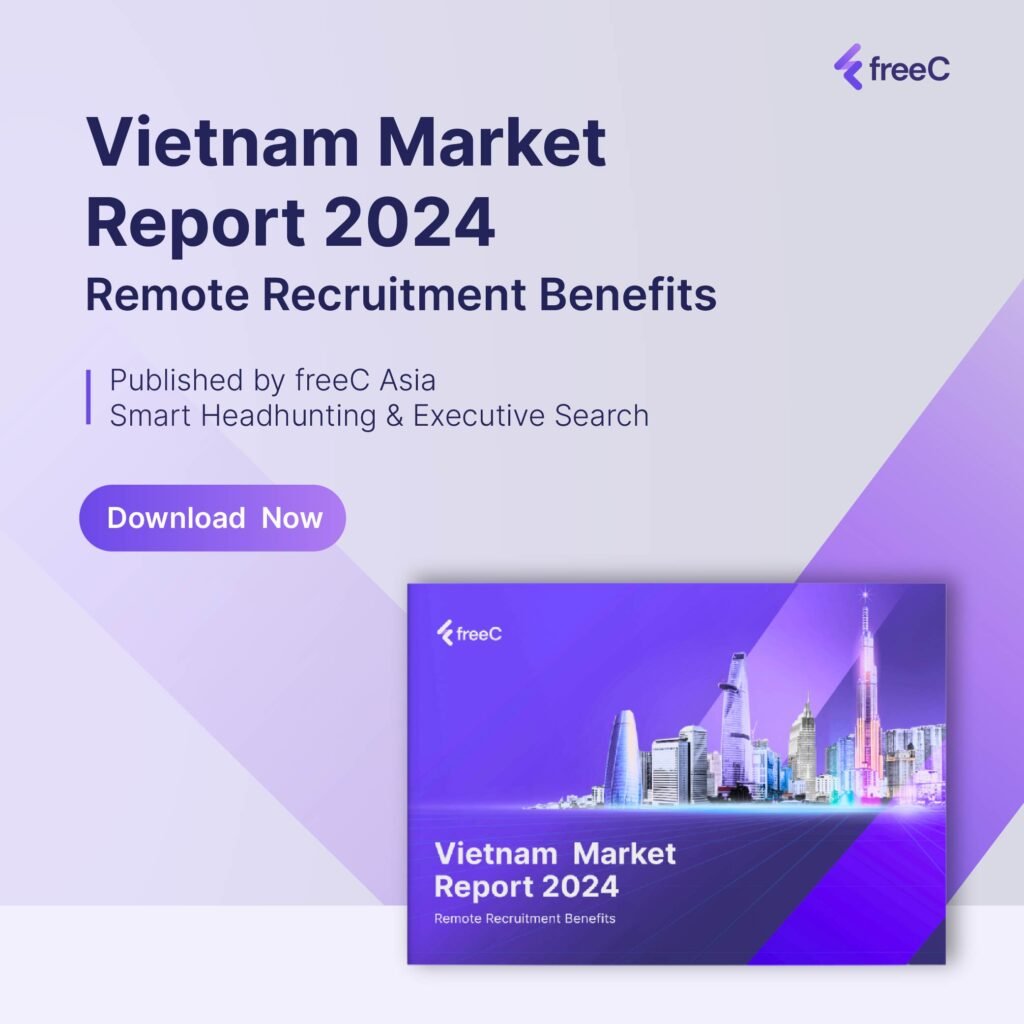As businesses across the globe increasingly embrace remote work and digital transformation, Vietnam has rapidly become a top destination for outsourcing IT services and software development. Vietnam offers a wealth of skilled developers, a favorable business environment, and competitive costs, making it an attractive choice for companies seeking high-quality remote software development.
This article explores why and how businesses can leverage Vietnam’s IT talent pool to build successful remote development teams. Let’s dive into the key factors contributing to Vietnam’s rise as a global IT hub and the benefits it offers to businesses worldwide.
Why Vietnam is Becoming a Global IT Hub
Vietnam’s IT sector has seen significant growth in recent years, driven by a combination of governmental support, a strong educational system, and an expanding tech ecosystem.
Educational Excellence
Vietnam’s focus on education, particularly in STEM (Science, Technology, Engineering, and Mathematics), has resulted in a large and growing talent pool. Annually, around 50,000 IT graduates enter the workforce, with many specializing in computer science, software engineering, and data science (InCorp Vietnam & TP&P Technology). Vietnamese universities and technical institutes have been enhancing their curricula to meet the demands of modern technology industries, producing graduates with the skills necessary for complex software development projects.
Government Support for IT and Innovation
The Vietnamese government has actively promoted the development of the IT sector, implementing policies that encourage foreign investment and support local startups. Initiatives such as the National Innovation Center (NIC) and tax incentives for tech companies have created a conducive environment for innovation (InCorp Vietnam). These efforts are aimed at transforming Vietnam into a leading player in the digital economy, with goals to contribute significantly to the country’s GDP.
Growing Tech Ecosystem
Vietnam’s major cities—Ho Chi Minh City, Hanoi, and Da Nang—are rapidly becoming tech hubs, attracting both local startups and multinational corporations. Companies like Intel, IBM, Samsung, and Sony have established a significant presence in Vietnam, tapping into the country’s abundant talent and relatively low labor costs (SmartDev & TP&P Technology). This burgeoning ecosystem not only provides opportunities for collaboration but also nurtures the next generation of tech entrepreneurs and innovators.
Benefits of Hiring Remote Developers from Vietnam
Vietnam’s remote software development market offers a range of benefits, including cost savings, access to a skilled workforce, and alignment with international business needs.

Cost-Effective Workforce
One of the most compelling reasons to hire remote developers from Vietnam is the cost advantage. The average monthly salary for a software developer in Vietnam is significantly lower than in other outsourcing destinations like India, China, or Eastern Europe. A mid-level software engineer in Vietnam typically earns between $400 to $600 per month (TP&P Technology & SmartDev). This cost-efficiency allows companies to save on labor expenses without compromising on the quality of work.
Skilled and Adaptable Talent
Vietnamese developers are known for their technical proficiency, particularly in popular programming languages such as Java, Python, and JavaScript. They are also increasingly skilled in emerging technologies like AI, blockchain, and cloud computing (TP&P Technology). Moreover, Vietnamese developers are highly adaptable, often working with international clients and teams, and adopting methodologies like Agile and DevOps to ensure smooth project management and delivery.
Cultural Compatibility and Work Ethic
Vietnamese professionals are recognized for their strong work ethic and commitment to delivering high-quality work on time. Furthermore, English proficiency is on the rise in Vietnam, making communication with international clients more seamless (SmartDev). The collaborative nature of Vietnamese developers and their cultural adaptability make them excellent candidates for remote development roles in multinational teams.
Time Zone Advantage
Vietnam’s time zone (GMT+7) offers a strategic advantage for companies in the Asia-Pacific region and the US West Coast. This overlap allows businesses to maintain consistent communication with their remote teams, enabling real-time collaboration and minimizing delays.
Key Skills of Vietnamese Developers
Vietnamese developers possess a diverse set of skills, making them suitable for a wide range of software development projects. Here are some of the in-demand skills commonly found among Vietnam’s IT talent:
- Programming Languages: Proficiency in Java, Python, JavaScript, C++, and PHP.
- Frameworks and Tools: Expertise in frameworks such as React, Angular, Node.js, and Django, as well as tools like Docker, Jenkins, and Kubernetes.
- Emerging Technologies: Experience with AI, machine learning, blockchain, and IoT solutions.
- Agile and DevOps: Familiarity with Agile methodologies and DevOps practices, which are becoming increasingly popular among Vietnamese developers.
How to Hire Remote Developers in Vietnam
Hiring remote developers in Vietnam can be a straightforward process if you follow these steps:
- Define Your Needs: Clearly outline the skills, experience level, and project requirements you’re looking for.
- Evaluate Hiring Models: You can choose between hiring freelancers, partnering with an outsourcing agency, or building a dedicated offshore team. Each model has its own set of advantages depending on the scale and nature of your project.
- Use Reputable Platforms: Platforms such as TopTal, Upwork, and Vietnam-specific job portals like TopDev are great resources for finding and vetting remote developers.
- Vetting Candidates: Conduct thorough technical interviews, coding assessments, and reference checks to ensure you are hiring the right talent for your needs.
- Legal and Contractual Considerations: Ensure you have solid contracts in place covering IP protection, confidentiality, and payment terms. Vietnam has a favorable legal framework for foreign companies outsourcing IT services, but it’s still essential to cover all legal bases.

This report will explain in detailed:
- Why your global recruitment strategy should focus on Vietnam market?
- What are 9 benefits that can significantly boost your recruitment ROI?
- How Vietnam workforce competency can leverage your business?
- How Vietnam salary guide & benchmark do benefit your hiring strategy?
Challenges and Solutions for Remote Software Development

While outsourcing software development to Vietnam offers numerous advantages, there are challenges to be mindful of:
- Communication Barriers: Although English proficiency is improving, communication can still be a hurdle. Many companies address this by providing English language training to their teams.
- Time Zone Differences: For businesses located in Europe or North America, coordinating across time zones can be challenging. Using project management tools like Slack and Jira can help manage tasks and keep teams aligned despite the time differences.
- Building Trust: Establishing trust with remote teams is crucial. Clear expectations, regular check-ins, and performance tracking can help build a strong working relationship with your Vietnamese developers.
Success Stories of Companies Leveraging Vietnam’s IT Talent
Several global companies have successfully leveraged Vietnam’s IT talent pool. National Australia Bank (NAB) is one example, having established the NAB Innovation Center in Vietnam to tap into the country’s rich tech talent. This center has been instrumental in driving NAB’s digital transformation efforts. Similarly, companies like Samsung, LG, and IBM have established large-scale operations in Vietnam, benefiting from the country’s cost-effective and skilled workforce.
Future Outlook for Vietnam’s IT Industry
Vietnam’s IT sector is poised for continued growth, with projections indicating that the IT services market will reach $2.07 billion by 2024. The government’s commitment to digital transformation and the increasing adoption of cutting-edge technologies such as AI, machine learning, and cloud computing further solidify Vietnam’s position as a global IT powerhouse.
Conclusion
Vietnam offers a compelling opportunity for companies looking to outsource remote software development. With its skilled and affordable talent pool, supportive government policies, and growing tech ecosystem, Vietnam is well-positioned to become a leading IT outsourcing hub. Whether you’re a startup or an established enterprise, leveraging Vietnam’s IT talent can help you build high-quality software solutions while optimizing costs.
By understanding the benefits and challenges, and following best practices for hiring and collaboration, businesses can unlock the full potential of Vietnam’s remote software development talent.









